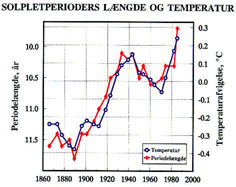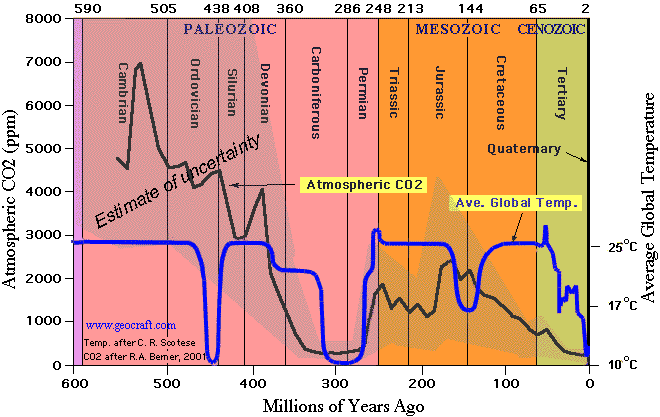I don't believe in anthropogenic global warming because the evidence just doesn't support it.
By plotting temperature trends over varying timescales, I can make the climate look like it's doing anything I want it do. This should be an image if this BBoard software supports it:
You should note that the current warming is less than the warming at the height of Rome's power and at the Medieval Climate Optimum.
Here is climate over the last 12,000 years:
And the last 100,000 years:
Which shows that temperature is definately up but that it started thousands of years before there were evil energy companies to cause it.
And, 420,000 years ago:
This latest image shows the obvious cyclicity to global temperature.
Now, compared to all the different contexts global warming can be placed in, global warming proponents always use the 150 year chart, as if 150 years means anything in terms of long-term trends. This is the one that they use:
http://muller.lbl.gov/pages/IceAgeBook/Chapter 1 html old
Kind of a pathethically short interval to make such dramatic claims by, considering the cyclicity and past warmings we have historically experienced, isn't it?
There is another problem with the 150 year curve.
The above image is hosted at Stanford University. It is a chart comparing global temperatures over the last 150 years, with solar output.
Printed in: Friis-Christensen, E., and K. Lassen, "Length of the solar cycle: An indicator of solar activity closely associated with climate,"
Science, 254, 698-700, 1991.
So there you have it. Real scientists who publish real data in real journals (Science being a leading journal) that implicate the Sun in the current warming, more than man.
Now, somebody explain to me how driving SUVs is causing the Sun's intensity to go up?
Or, how about somebody explain why global temperature curves do not match global CO2 concentrations across Earth history?
http://www.geocraft.com/WVFossils/Carboniferous_climate.html
This is also an interesting diagram because it contradicts one of my references below. That's typical of the nature of the game.
Now, in the ten or so pages before this post, one of you has been particularly insistent in claiming that no scientists question anthropogenic global warming. My personal experience contradicts that. In my department, all the climate people and meteorologists doubt the global warming theory. (The geologists don't.)
This idea that the issue is settled in favor of global warming, is absurd and easily refuted by doing a search in a journal database. For example:
Akiyama, Masahiko (Moiwa****a 4-5-5, Hokkaido, Japan)
Chikyu Kagaku = Earth Science, May 2004, Vol. 58, Issue 3, pp. 139-147
And the abstract says:
The causal mechanism producing the recent temperature rise at the earth surface is still not clear, though an increasing CO (sub 2) concentration is generally thought to be the driving force of recent global warming. An alternative hypothesis has been proposed that the driving force is due to a change of solar activity. In this short review, I describe the historical change of the surface temperature on the earth from the Precambrian to the present with reference to the CO (sub 2) concentration of the atmosphere. The survey of the spectacular history of the earth reveals that an increase of atmospheric CO (sub 2) pressure has a close relationship with the temperature of the earth during geologic time, but the causal and effect relationship between the two items is still not yet clear. Therefore, further scientific studies are needed before deciding whether global warming is caused by the increasing CO (sub 2) pressure due to fossil fuel consumption.
How about another one?
Yama****a, Masakazu (Doshisha University, Department of Molecular Science and Technology, Kyoto, Japan)
Source:
Doshisha Daigaku Rikagaku Kenkyu Hokoku =
Science and Engineering Review of Doshisha University, April 2004, Vol. 45, Issue 1, pp. 1-7
And the abstract:
The view that global warming is caused by an increase in the CO (sub 2) level in the atmosphere has become an international issue without evaluation of the phenomenon or scientific investigation of its causes. In this study, I showed that increases in carbon dioxide are not associated with climate changes. I also presented the hypothesis that changes in the earth's temperature caused by some mechanism induce changes in the CO (sub 2) concentration in the atmosphere.
Kukla, George J. (Lamont Doherty Earth Observatory, Palisades, NY, United States); Gavin, Joyce.
Global and Planetary Change, January 2004, Vol. 40, Issue 1-2, pp. 27-48
(From the abstract) Association of recent positive seasonal anomalies of global mean temperature with El Nino events suggests that the ongoing global warming may have a significant, orbitally influenced natural component. The warming could continue even without an increase of greenhouse gases.
Karlen, Wibjorn (Stockholm University, Department of Physical Geography, Stockholm, Sweden)
Ambio, September 2001, Vol. 30, Issue 6, pp. 349-350
This paper addresses the fact that measurements show global temperature has increased recently, along with atmospheric concentration of CO (sub 2) , CH (sub 4) and other gases. Measurements indicate, however, most of the increase in temperature occurred prior to the anthropogenic release of CO (sub 2) became a potentially important factor (1950). Global temperature as well as both solar irradiation and the atmospheric concentration of greenhouse gases have increased since the mid-1800s. The combined effect of solar irradiation and greenhouse gases is examined. (MTE)
Zangerl, R. (Field Museum of Natural History, Department of Geology, Chicago, IL, United States); Turnbull, W. D.TER-QUA Symposium Series - Institute for Tertiary-Quaternary Studies, 2002, Vol. 3, pp. 99-107.
The abstract:
Our essay discusses CO (sub 2) and other greenhouse gasses, their formation, global sinks, and how they may, or may not, be contributing to a calamitous deterioration of the Earth's environment. Accurate, detailed climatic record-taking began only about 100 years ago, and these data form the basis for most climatic models. We are convinced that such a short term base is totally inadequate to permit determination as to whether the Earth is warming or cooling. We do not know in any great detail how the Earth's sinks for C; H; O; and N have operated in the past, or what the "normal" fluctuations have been, and the little we do know does not seem to be an intimate part of those models.
The reality of climate change is that it
will happen if we drive SUVs or not. Earth's climate has never been stable, it has always been either getting colder or warmer. Over the last 150 years it seems to have been getting warmer, and nobody knows why. The fact is that sea levels are going to bob up and down and there's not a thing any of us can do about it. Killing our economy with Kyoto isn't going to change what is geologically inevitable.
Further, all the concerns about anthropogenic global warming are driven by computer models and not by actual observation or data collection. I have an inherent distrust of people do all their work with computers and never go into the field to test models. There are several different computer models for predicting the weather for the next 48 hours, and their outputs are internally inconsistent and sometimes all are wrong. Why, then, should we trust modelers who want to predict climate 50 years from now?
Having said that, anthropogenic global warming is worthy of scientific study. However, the legions of government agencies, politicians, and the media, who almost always take it as unquestionable truth to either boost ratings with fear or help themselves politically (*cough* Democrats *cough*) need to either
butt out or present the facts fairly. Since they will never do the latter, I suggest the former.
The above person said that "The Earth itself did" (increase CO2 concentrations). There are plenty of ways this could happen. Essentially the geologic/climate system is too complex to model but there are plenty of scenarios we can try. Suppose you have a warming (say, induced by increased solar output). The ice sheets retreat a bit from Canada, and some permafrost thaws out. What's frozen in that permafrost? A great deal of carbon, which is suddenly open to organisms to digest and respire. Millions of square kilometers of thawed permafrost dumps large quantities of CO2 into the atmosphere.
Suppose you freeze over the northern oceans and close off vertical circulation. The Antarctic icesheet advances offshore to the continental shelf. But when it reaches the shelf, it is suddenly in deep water that it cannot chill all the way down. The result would be water encountering the edge of the ice sheet, becoming denser and sinking, causing convection to occur in the formerly stagnant ocean. It turns over, and CO2-rich bottom waters rise to the surface, releasing CO2. (Sorry, I saw that scenario recently I think in
Earth and Planetary Science Letters and don't have the reference. As for the permafrost scenario, I didn't make that up either, right now there is concern about melting from the current alleged increase in temperature.)
Then, of course, you have volcanoes, which release CO2, sulfur dioxide, methane, and dust into the atmosphere naturally, and which are an eight ball for any climate model.
 . Read up on physics; especially about radiation and absorption properties. Then you can build your own model for the energy balance of the Earth based on only fundamental physical relations. You can use your own model to prove or disprove that humans are changing Earths energy balance and consequently also the global climate. I bet my copy of civ3 that you will find out that human made climate change is very real if you take the time to research this properly.
. Read up on physics; especially about radiation and absorption properties. Then you can build your own model for the energy balance of the Earth based on only fundamental physical relations. You can use your own model to prove or disprove that humans are changing Earths energy balance and consequently also the global climate. I bet my copy of civ3 that you will find out that human made climate change is very real if you take the time to research this properly.











 Does this sound like responsible behavior?
Does this sound like responsible behavior?